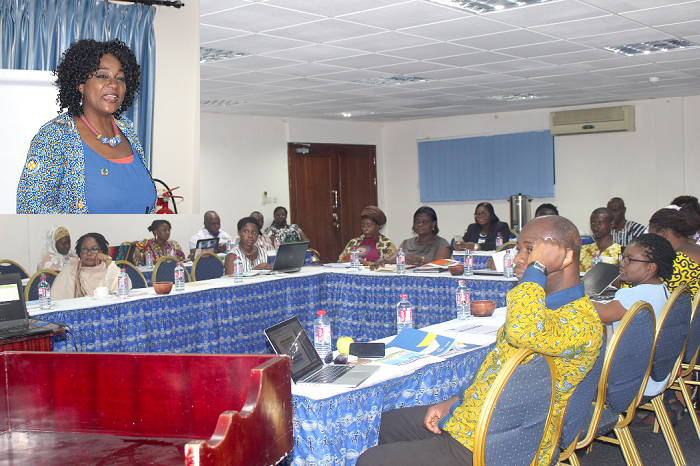
Ministry reviews national efforts to curb child marriage
The Child Marriage Unit of the Ministry of Gender, Children and Social Protection has met with stakeholders to review national efforts to curb child marriage in the country.
The two-day meeting was held in partnership with the United Nations Population Fund (UNFPA) and the United Nations Children’s Education Fund (UNICEF).
Giving the progress of implementation of the national effort to address child marriage, the Project Coordinator, Mr Foster Adzraku, said the ministry had, among other initiatives, developed a National Strategic Framework to end child marriage in Ghana.
According to him, the strategic framework had set clear national goals, objectives, strategies and key interventions across different sectors.
It also gives a clear direction to all sectors at various levels involved with prevention and response efforts at addressing child marriage in Ghana to ensure coordinated efforts and measurable targets towards ending child marriage in Ghana.
Key objectives
Mr Adzraku stated that the key strategic objectives were to empower girls and boys to prevent and respond to child marriage, influence change in communities’ beliefs, attitudes and social norms that drove child marriage and accelerated access to quality education, sexual and reproductive health information and services and other opportunities.
Others, he added, were to increase the quality and amount of data and evidence available to inform policy and programming and ensure that national laws, policy frameworks and mechanisms related to ending child marriage were in place and effectively implemented.
Human rights violation
Addressing the meeting, the Minister of Gender, Children and Social Protection, Ms Otiko Afisah Djaba, stressed that it was appalling that girls who had the potential to impact positively on their families, communities and the country ended up in informal unions at a tender age.
“Child marriage is one of the biggest human rights violation on girls, which strips the girl-child of her right to have better access to health, education and employment,” she said, commending the stakeholders and partners working to curb this menace for their efforts.
Ms Djaba further stated that it was the ministry’s goal to end child marriage in Ghana by 2030, adding that the Child Marriage Unit would coordinate all activities among key actors at different levels to ensure the smooth implementation of the objectives of the Strategic Framework.
She noted that the progress of the stakeholders and the involvement and support of community rulers so far gave some hope that although it was a complex situation to end child marriage, Ghana could make significant progress.
She indicated that the ministry planned to translate the Strategic Framework into a simplified document for easy understanding for the people at the grassroot level in the communities.
“The ministry will further link survivors of child marriage to economic viable opportunities. Additionally, we are seeking to engage more state and non-state institutions and all other stakeholders to perform their roles on the concept and implementations of the Strategic Framework to end child marriage.
Situational analysis
A Programme Analyst at the UNFPA, Ms Selina Owusu, mentioned that a situational analysis of adolescent girls and young women in Ghana conducted in the country revealed that the main drivers of child marriage were poverty, lack of education, pregnancy, rural residence, religious beliefs, cultural norms and societal and peer pressure.
She said the study was to identify and analyse the major trends in issues that impacted on adolescent girls and young women in Ghana, such as teenage pregnancy, abortion, gender-based violence, education, as well as child marriage.
It is also to identify and analyse the enabling factors that perpetuate the phenomenon of child and forced marriages in the country and make recommendations on relevant programming.
Other key findings, Ms Owusu noted, were that the main consequences of child marriage were dropping out of school, pregnancy complications, loss of autonomy and gender-based violence against girls.
She stressed that the police and chiefs had a role to play in the effort to end child marriage through the enforcement of laws and policies and educating girls.
